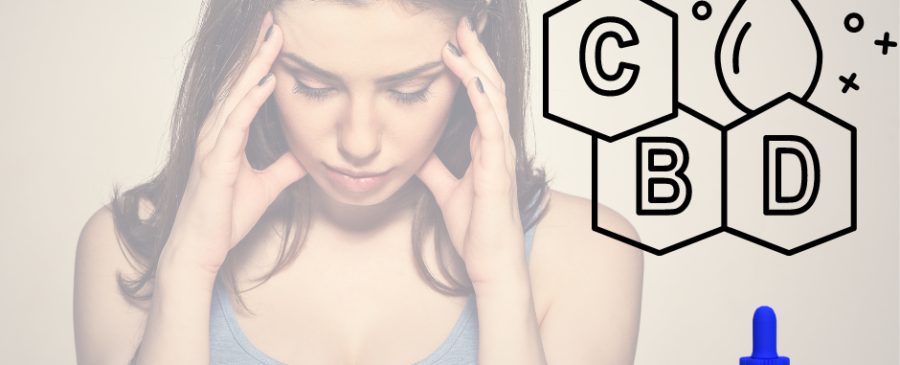Use of CBD for Stress and Anxiety

Use of CBD for Stress and Anxiety
CBD (Cannabidiol):
Cannabidiol, also known as CBD, is a natural chemical that has grown in popularity recently. It’s one of more than 87 cannabinoids contained in hemp and cannabis plants. CBD is not psychoactive, unlike some other cannabinoids, and has a different pharmacologic effect than psychoactive cannabinoids. According to several researchers, CBD may be helpful for individuals with stress and anxiety.
Use of CBD:
Depression and anxiety disorders are typical mental health problems that can have long-term consequences for a person’s health, social life, work life, and overall health. CBD appears to have a beneficial interaction with serotonin receptors in the brain, which could make it useful in the treatment of depression and anxiety, according to current research. In previous research, CBD has shown promise as a treatment for stress and anxiety, and it may have less adverse effects for some people.
Researchers’ findings may help explain why CBD is effective for treating depression. They show that CBD seems to interact positively with brain serotonin receptors in most investigations. Many activities in the body are affected by serotonin, including mood, emotions, and other factors of well-being. People with depression often benefit from treatment that focuses on maintaining healthy levels of serotonin.
The body of research focusing on CBD’s use as a treatment is still growing. Well-conducted clinical research to support the use of CBD for the treatment of anxiety or depression has been underway, especially with the passage of the 2019 farm bill. There needs to be a lot more research done before CBD can be considered a medication for anxiety and depression by the FDA. CBD is a strong molecule that’s becoming more popular as an alternative treatment. CBD as an antidepressant has some promising results, but additional human study is needed to evaluate its full efficacy and dosing guidelines to achieve maximum benefits (Schier et al.,2014).
Anxiety and stress also decrease GABA, a naturally occurring brain neurotransmitter that instructs neurons to slow down or cease firing. This neurotransmitter tells the body to cool out by assisting in the induction of sleep, relaxation of muscles, and creation of a relaxed state of mind.
Potentially, CBD may be able to assist in regulating GABA so that the body may get back to its regularly scheduled timetable. Researchers believe CBD improves the recovery of depressed people’s prefrontal and hippocampus neural pathways. Among other aspects, CBD is known to affect our mood, sleep, and perception of pain positively. These procedures must run smoothly if we are to feel better, sleep better, and have less pain. A dysfunctional endocannabinoid system leads to anxiety and depression by interfering with sleep, pain and mood control (Crippa et al., 2018).
An effective form of CBD for use in anxiety and stress
Oils or Tinctures: There are variations in the quality of the CBD plant extracts and formulations available. However, experts feel that CBD oil or tincture (alcohol-based solution) administered under the tongue is the most beneficial form. These sublingual formulations ensure that cannabinoids are dispersed throughout the body. In contrast to edibles, which are largely eliminated by the digestive system, this approach does not require ingestion and is therefore preferred by many specialists. Everyone’s response differs due to the distinctive of their biology, metabolism, and DNA.
Dry-herb Vaporizing: Some experts propose using a dry herb vaporizer to heat dried CBD flowers for patients who are feeling nervous and need instant relief. These are generally safe because they prevent the by-products of burning plant material and may be set at a temperature that maximizes the benefits of CBD consumption.
Potential side effects of CBD use;
CBD is regarded to be safe, according to the World Health Organization, however, it can have some minor adverse effects with incorrect dosages, such as:
- Mild diarrhea
- Sleepiness
- Loss of appetite
- Mouth dryness
CBD has been shown in studies to be a useful treatment for depression, but additional study is required to make definitive conclusions and determine an appropriate dosage (Laczkovics et al.,2021).
To learn more about how CBD is extracted from hemp, click here.
To learn more about one type of extraction method, click here.
References:
- Crippa, J. A., Guimarães, F. S., Campos, A. C., & Zuardi, A. W. (2018). Translational investigation of the therapeutic potential of cannabidiol (CBD): toward a new age. Frontiers in immunology, 9, 2009.
- R de Mello Schier, A., P de Oliveira Ribeiro, N., S Coutinho, D., Machado, S., Arias-Carrión, O., A Crippa, J., … & C Silva, A. (2014). Antidepressant-like and anxiolytic-like effects of cannabidiol: A chemical compound of Cannabis sativa. CNS & Neurological Disorders-Drug Targets (Formerly Current Drug Targets-CNS & Neurological Disorders), 13(6), 953-960.
- September 2019 Is Cannabis an Effective Treatment for Anxiety – What the Research Showsorg (ADAA member Jeremy Tyler, PsyD quoted)
- Laczkovics, C., Kothgassner, O. D., Felnhofer, A., & Klier, C. M. (2021). Cannabidiol treatment in an adolescent with multiple substance abuse, social anxiety and depression. Cannabidiol-Therapie eines Jugendlichen mit multiplem Substanzabusus, Sozialphobie und Depression. Neuropsychiatrie : Klinik, Diagnostik, Therapie und Rehabilitation : Organ der Gesellschaft Osterreichischer Nervenarzte und Psychiater, 35(1), 31–34. https://doi.org/10.1007/s40211-020-00334-0


Recent Comments